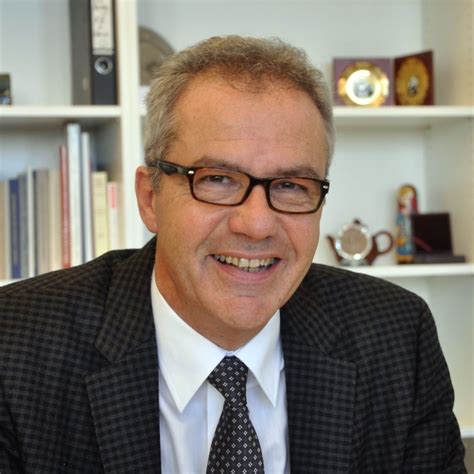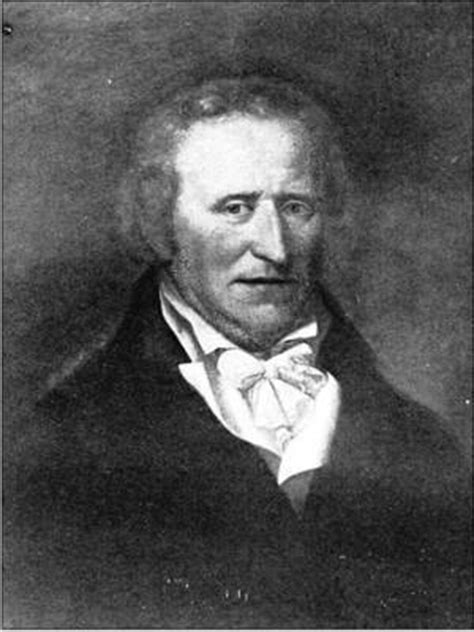george hermes steinfurt | CATHOLIC ENCYCLOPEDIA: George Hermes george hermes steinfurt Born at Dreierwalde, in Westphalia, Hermes was educated at the gymnasium (high school) in Rheine and the University of Münster.In 1797 Hermes . See more CONSTANTLY REINVENTED. Reflecting stylistic research that has become more sophisticated over time, the Tank watch will always evolve its line. From 1921, the case .Historical events from year 1994. Learn about 834 famous, scandalous and important events that happened in 1994 or search by date or keyword.
0 · Hermes, Georg
1 · George Hermes
2 · Georg Hermes
3 · Curlie
4 · CATHOLIC ENCYCLOPEDIA: George Hermes
5 · 24 Catholic RationalismGeorg Hermes and Anton Günther
Omega Seamaster white dial watches offer a diverse array of watch movements, including the revolutionary Co-Axial calibers such as the Caliber 8500 and the Caliber .
Georg Hermes (22 April 1775, Dreierwalde – 26 May 1831, Bonn) was a German Roman Catholic theologian who advocated a rational approach to theology. During his lifetime, his theology was greatly in vogue in Germany, but declined after the posthumous papal condemnation of "Hermesianism" by Pope . See moreBorn at Dreierwalde, in Westphalia, Hermes was educated at the gymnasium (high school) in Rheine and the University of Münster.In 1797 Hermes . See more• Karl Werner (1866). Geschichte der katholischen Theologie. pp. 405ff.• Herman H. Schwedt (1980). Das Römische Urteil über Georg Hermes (1775–1831). Ein . See moreHis works were Untersuchungen über die innere Wahrheit des Christenthums (Münster, 1805), and Einleitung in die christkatholische Theologie, of which the first part, a philosophical introduction, was published in 1810, the second part, on positive theology, in . See more
Georg Hermes (born April 22, 1775, Dreierwalde, Münster—died May 26, 1831, Bonn) was a German Roman Catholic theologian, originator of the theological system called Hermesianism, .GEORG HERMES (1775-1831), German Roman Catholic theologian, was born on the 22nd of April 1775, at Dreyerwalde, in Westphalia, and was educated at the gymnasium and univer sity .Philosopher and theologian, b. at Dreierwalde near Theine (Westphalia), 22 April, 1775; d. at Bonn on the Rhine, 26 May 1831. After completing his course in the gymnasium, or high .Philosopher and theologian, b. at Dreierwalde near Theine (Westphalia), 22 April, 1775; d. at Bonn on the Rhine, 26 May 1831. After completing his course in the gymnasium, or high .
HERMES, GEORG Philosopher and theologian whose thought aroused great controversy in nineteenth-century German Catholic theology; b. Dreierwalde, Westphalia, April 22, 1775; d. .Georg Hermes (22 April 1775, Dreierwalde – 26 May 1831, Bonn) was a German Roman Catholic theologian who advocated a rational approach to theology. During his lifetime, his theology .George Hermes (Georg Hermes), 1775-1831. Nineteenth-century German philosopher and Catholic theologian. His rationalistic theology was strongly influenced by Kant. More information
This chapter returns to the so-called ‘semi-rationalist’ Catholics, Georg Hermes (d.1831) and Anton Günther (d.1863), whose work the Catholic Church censured for adopting .GEORG HERMES (1775-1831), German Roman Catholic theologian, was born on the 22nd of April 1775, at Dreyerwalde, in Westphalia, and was educated at the gymnasium and univer sity .Georg Hermes (22 April 1775, Dreierwalde – 26 May 1831, Bonn) was a German Roman Catholic theologian who advocated a rational approach to theology. During his lifetime, his theology was greatly in vogue in Germany, but declined after the posthumous papal condemnation of "Hermesianism" by Pope Gregory XVI.
Georg Hermes (born April 22, 1775, Dreierwalde, Münster—died May 26, 1831, Bonn) was a German Roman Catholic theologian, originator of the theological system called Hermesianism, which attempted to demonstrate the rational necessity of Christianity.GEORG HERMES (1775-1831), German Roman Catholic theologian, was born on the 22nd of April 1775, at Dreyerwalde, in Westphalia, and was educated at the gymnasium and univer sity of Minster, in both of which institutions he afterwards taught.Philosopher and theologian, b. at Dreierwalde near Theine (Westphalia), 22 April, 1775; d. at Bonn on the Rhine, 26 May 1831. After completing his course in the gymnasium, or high school, at Rheine, Hermes studied philosophy at the University of Münster from 1792 until 1794.Philosopher and theologian, b. at Dreierwalde near Theine (Westphalia), 22 April, 1775; d. at Bonn on the Rhine, 26 May 1831. After completing his course in the gymnasium, or high school, at Rheine, Hermes studied philosophy at the University of Münster from 1792 until 1794.

Hermes, Georg
HERMES, GEORG Philosopher and theologian whose thought aroused great controversy in nineteenth-century German Catholic theology; b. Dreierwalde, Westphalia, April 22, 1775; d. Bonn, May 26, 1831. Source for information on Hermes, .Georg Hermes (22 April 1775, Dreierwalde – 26 May 1831, Bonn) was a German Roman Catholic theologian who advocated a rational approach to theology. During his lifetime, his theology was greatly in vogue in Germany, but declined after the posthumous papal condemnation of "Hermesianism" by Pope Gregory XVI .George Hermes (Georg Hermes), 1775-1831. Nineteenth-century German philosopher and Catholic theologian. His rationalistic theology was strongly influenced by Kant. More information This chapter returns to the so-called ‘semi-rationalist’ Catholics, Georg Hermes (d.1831) and Anton Günther (d.1863), whose work the Catholic Church censured for adopting too much (or adapting too little) from German Idealism.
GEORG HERMES (1775-1831), German Roman Catholic theologian, was born on the 22nd of April 1775, at Dreyerwalde, in Westphalia, and was educated at the gymnasium and univer sity of Minster, in both of which institutions he afterwards taught. In 1820 he was appointed professor of theology at Bonn, where he died on the 26th of May 18 3 1.
Georg Hermes (22 April 1775, Dreierwalde – 26 May 1831, Bonn) was a German Roman Catholic theologian who advocated a rational approach to theology. During his lifetime, his theology was greatly in vogue in Germany, but declined after the posthumous papal condemnation of "Hermesianism" by Pope Gregory XVI.
Georg Hermes (born April 22, 1775, Dreierwalde, Münster—died May 26, 1831, Bonn) was a German Roman Catholic theologian, originator of the theological system called Hermesianism, which attempted to demonstrate the rational necessity of Christianity.GEORG HERMES (1775-1831), German Roman Catholic theologian, was born on the 22nd of April 1775, at Dreyerwalde, in Westphalia, and was educated at the gymnasium and univer sity of Minster, in both of which institutions he afterwards taught.
Philosopher and theologian, b. at Dreierwalde near Theine (Westphalia), 22 April, 1775; d. at Bonn on the Rhine, 26 May 1831. After completing his course in the gymnasium, or high school, at Rheine, Hermes studied philosophy at the University of Münster from 1792 until 1794.Philosopher and theologian, b. at Dreierwalde near Theine (Westphalia), 22 April, 1775; d. at Bonn on the Rhine, 26 May 1831. After completing his course in the gymnasium, or high school, at Rheine, Hermes studied philosophy at the University of Münster from 1792 until 1794.

HERMES, GEORG Philosopher and theologian whose thought aroused great controversy in nineteenth-century German Catholic theology; b. Dreierwalde, Westphalia, April 22, 1775; d. Bonn, May 26, 1831. Source for information on Hermes, .
Georg Hermes (22 April 1775, Dreierwalde – 26 May 1831, Bonn) was a German Roman Catholic theologian who advocated a rational approach to theology. During his lifetime, his theology was greatly in vogue in Germany, but declined after the posthumous papal condemnation of "Hermesianism" by Pope Gregory XVI .
George Hermes (Georg Hermes), 1775-1831. Nineteenth-century German philosopher and Catholic theologian. His rationalistic theology was strongly influenced by Kant. More information This chapter returns to the so-called ‘semi-rationalist’ Catholics, Georg Hermes (d.1831) and Anton Günther (d.1863), whose work the Catholic Church censured for adopting too much (or adapting too little) from German Idealism.

panerai pam00270

George Hermes
First presented in 1967, the Sea-Dweller model was the first of its collection designed with a helium escape valve for deep-sea diving, while the model also became available for civilian purchase rather than their original commercial manufacturing, leading to dramatic growth in pieces like this 1991 pre-owned Sea-Dweller 40mm.
george hermes steinfurt|CATHOLIC ENCYCLOPEDIA: George Hermes



























